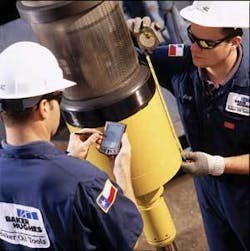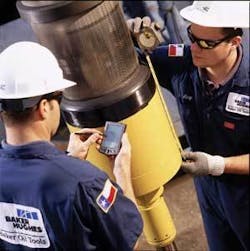Spotlight on Petroleum Engineers
Petroleum engineers search the world for reservoirs containing oil or natural gas. Once these resources are discovered, petroleum engineers work with geologists and other specialists to understand the geologic formation and properties of the rock containing the reservoir, determine the drilling methods to be used and monitor drilling and production operations. They design equipment and processes to achieve the maximum profitable recovery of oil and natural gas.
Petroleum engineers rely heavily on computer models to simulate reservoir performance using different recovery techniques. They also use computer models for simulations of the effects of various drilling options.
Since only a small amount proportion of oil and natural gas in a reservoir will flow out under natural forces, petroleum engineers develop and use various enhanced recovery methods. These include injecting water, chemicals, gases or steam into an oil reservoir to force out more of the oil. They also include using computer-controlled drilling or fracturing to connect a larger area of a reservoir to a single well. Because even the best techniques in use today recover only a portion of the oil and gas in a reservoir, petroleum engineers research and develop technology and methods to increase recovery and lower the cost of drilling and production operations.
Employment
Petroleum engineers hold about 14,000 jobs, mostly in oil and gas extraction, professional, scientific and technical services, and petroleum refining, according to the U.S. Bureau of Labor Statistics (BLS). Employers include major oil companies and hundreds of smaller, independent oil exploration, production and service companies.
Most petroleum engineers work where oil and natural gas are found. Large numbers are employed in Texas, Louisiana, Oklahoma, Alaska and California, including offshore sites. Many American petroleum engineers also work overseas in oil-producing countries.
Career Outlook
Although U.S. employment of petroleum engineers is expected to decline through 2012 because most of the potential petroleum-producing areas in the United States have been explored, career opportunities are favorable. This is because the number of job openings domestically will likely exceed the relatively small number of graduates and career opportunities involving work outside the United States are expanding. Many job openings will occur from the need to replace petroleum engineers who leave the labor force or transfer to other occupations.
Petroleum engineers work around the world, and the best employment opportunities may be in other countries besides the United States. Many foreign employers seek U.S.-trained petroleum engineers, and many U.S. employers maintain overseas operations where petroleum engineers work.
Earnings
Median annual earnings of petroleum engineers were $83,370 in 2002, the latest year available from BLS. The middle 50 percent earned between $63,390 and $105,920. The lowest 10 percent earned less than $49,010, and the highest 10 percent earned more than $127,950.
According to a 2003 salary survey by the National Association of Colleges and Employers, bachelor’s degree candidates in petroleum engineering received starting offers averaging $55,987 per year.

